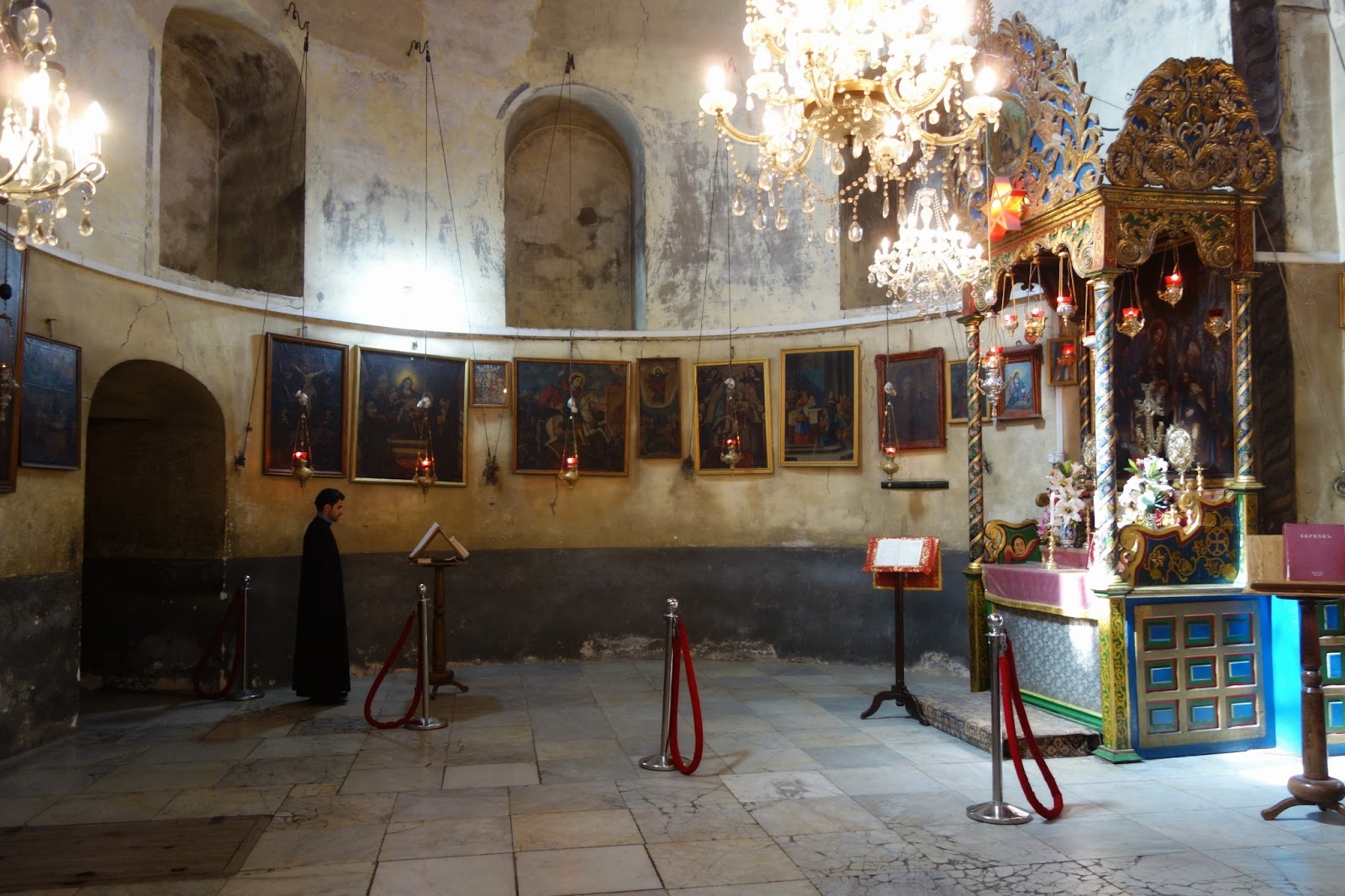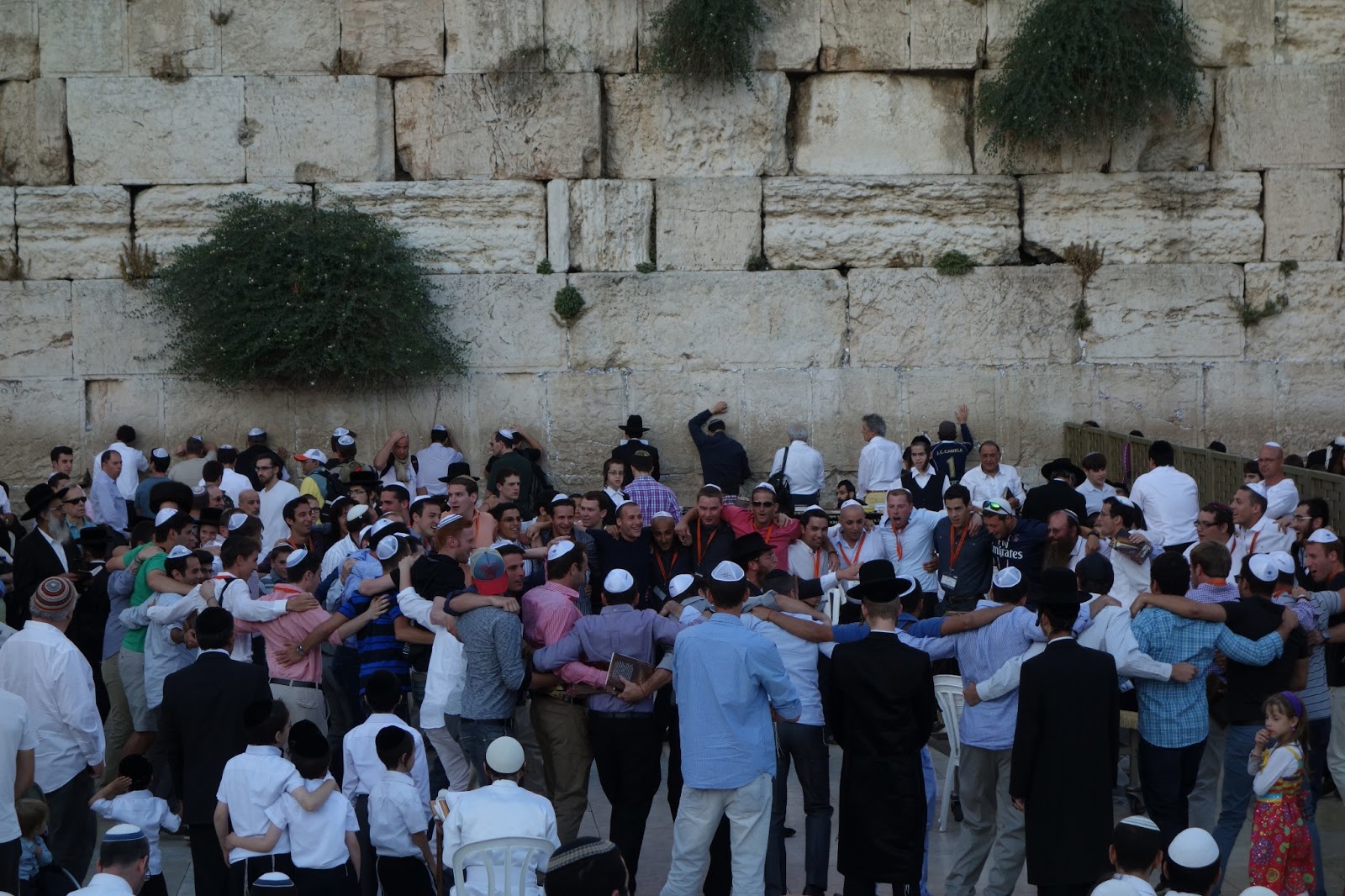Inside the Church of the Holy Sepulchre, the site of Jesus' burial and resurrection.
As a Christian growing up attending Sunday school, you get a mystical mental vision of the holy land. It was a place where miracles could happen and where God was engaged with the world, speaking via angels, prophets, bushes, you name it.
I wish someone would have showed us little kids a map of the world, pointed out Israel and Palestine, and then the exact little cities where it all went down, but that never happened. Maybe some churches do this, but I imagine certain churches might be afraid of getting a little too historical and having the ancient land lose some of its mystique. In the holy land, after all, the biblical world comes to life realer than ever while simultaneously coming down to size.
When you show up to the Sea of Galilee, you decide that your doubt of some guy literally walking on water here was probably well placed. The lake -- it's actually more like a lake than a sea -- looks like many others I have seen.
However, even if Jesus didn't actually perform supernatural feats, being here in the holy land reminds you that he was a real person and he visited real places and did real things and faced real enemies. The more I envision and remember him as a mortal human being that actually walked the Earth, the more awe and deep respect I have for him as a great martyr for love and tolerance.
In today's world, when it comes to religion, I think young people too often throw the baby out with the bathwater. Though there are elements of parochialism and mysticism in Christianity, as well as a long history of cruelty in the name of God, it shouldn't mean we handwave away the wisdom and deep challenge of the Bible's message.
The biblical times weren't that different or disconnected from our world anyway; they were full of moral dilemmas, inequality, suffering, and poverty. Jesus offered one of the brightest and most difficult paths to take, sacrifice of our own comforts for something far greater than ourselves, a humanity full of peace, justice and compassion. It was never a fantasy world.
I don't think the decline of religion in many parts of the world is neccessarily a bad thing, but I hope that our increasingly godless world can still find -- somewhere -- inspiration to struggle for shalom.
Where Jesus was crucified.
Where Jesus was born in Bethlehem, Palestine, now the Church of the Nativity. His birth spoke to humility, although somewhere along the line that theme seems to have been lost.
The Western Wall, one of the holiest sites for Jews. On the other side is the Temple Mount, currently the site of the beautiful Dome of the Rock (where Muhammed ascended to heaven). Problematically, the Temple Mount that is now in the Arabs' possession is supposed to be -- as God dictated long ago -- the center of the Jewish nation and site of their great Third Temple.
An odd combination of mourning in the background (no Third Temple yet) and celebration in the foreground (who doesn't like to celebrate?).
Young Israeli soldiers coming to the Western Wall. This was shortly before they all joined together for a roaring, jubilant celebration. Gun-toting soldiers all dancing in a circle is a strange sight for a holy place. I had no idea what to think of all the various groups and different demeanors coming together here.
The Holy Land is not a Fantasy World where a great claw controlled by an omniscient, all-seeing being plucks out creatures judged to be worthy of an eternity of heavenly bliss. It's a place where great teachers like Jesus and Muhammed and impossible arcade games taught us to humble ourselves.
Dome of the Rock.
Noelle and I can easily come to the Temple Mount even though it means relatively little to us. For a Palestinian for whom it would mean the world, however, it would be nearly impossible to visit.
Inside our hostel, "The Citadel," in the old city of Jerusalem.
The view from the roof.
The Sea of Galilee. Okay, it does look pretty glassy... perhaps walkable under the right conditions.



















































